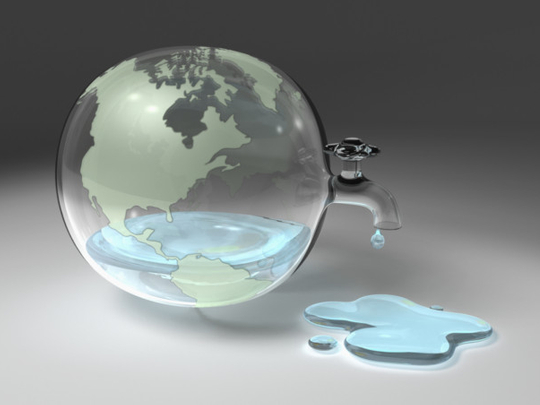
- The UN declared World Water Day on March 22, 1993, to raise awareness about issues such as the fact that one billion people are without access to safe drinking water. The general public is encouraged to show support for these issues by not using their taps on this day.
- UN Water released its latest World Water Development Report yesterday. It addresses the theme of Water and Energy, highlighting how the two are interconnected and interdependent. Roughly 75 per cent of all industrial water withdrawals are used for energy production. Conversely, energy is required for pumping and treating water.
- By 2025, 1.8 billion people will be living in countries or regions with absolute water scarcity, and two-thirds of the world’s population could be living under water-stressed conditions. Eight of the 22 Arab League nations have the lowest water availability per person in the world.
- According to the report, around 15-18 billion cubic metres of freshwater resources are contaminated by fossil fuel production every year.
- The UAE responded to the UN’s call for improved water sustainability with the launch of a Water Resources Management Strategy for Abu Dhabi at the International Water Summit in January, as well as the publication of a guide to support organisations. The strategy covers three sources of water — desalinated water, recycled water and groundwater — and addresses issues around supply and demand.
- UN officials believe that tackling water and energy issues is key to a sustainable future. They said in February that water, sanitation and sustainable energy crises are among the world’s pre-eminent development challenges. UN General Assembly President John Ashe told the body 768 million people lack access to clean drinking water and 2.5 billion do not have toilet facilities. The UN says that for developing countries alone, $103 billion (about Dh378 billion) per year is required to finance water sanitation and wastewater treatment through 2015.
- UN Secretary General Ban Ki-moon believes the world must work together to ensure access to safe drinking water, sanitation and hygiene. He told the UN General Assembly in February that with the global population now at seven billion and rising, the world will need 35 per cent more food, 40 per cent more water and 50 per cent more energy by 2030.












